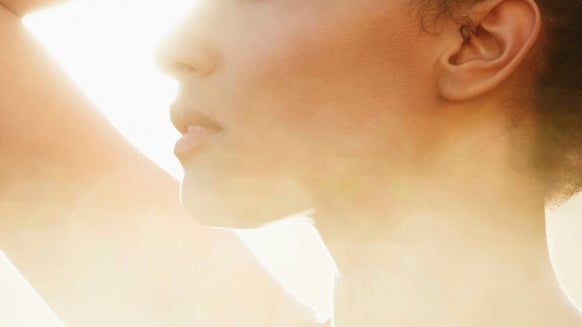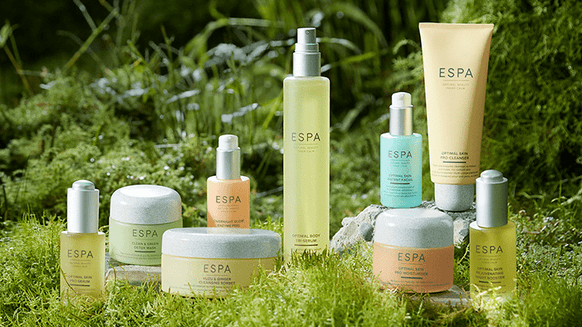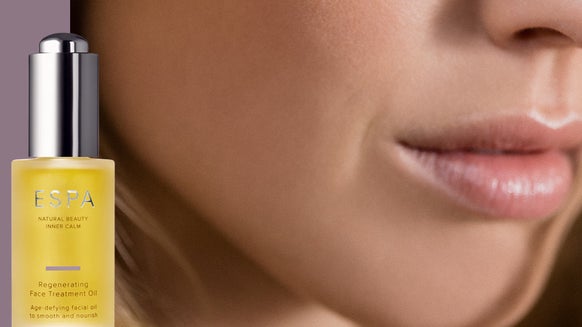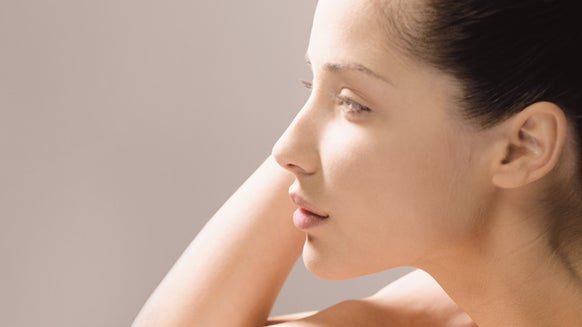Essential Menopause Skincare Tips for Skin and Wellbeing

A transformative time in which the menstrual cycle terminates, and hormonal changes occur, menopause is a universal experience for women, marked by common key changes.
It’s known to have various symptoms and side effects – from hot flushes to fluctuating moods – but one often-overlooked aspect is how many women are affected by menopausal skin. While some might only notice minor, gradual changes, others can encounter a sudden shift that starts before menopause has fully begun.
To learn all things menopause skincare and wellness, keep reading for expert tips and guidance to help you navigate this milestone journey.
What Is the Menopause?
Menopause is defined as the end of a woman’s menstrual cycle permanently, when her periods have ceased for 12 continual months to indicate she can no longer naturally conceive. This causes a drop in oestrogen and progesterone and a fluctuation of testosterone – which may make some people feel out of sync with their bodies and encounter common menopausal symptoms such as sleep disturbances and trouble regulating body temperature.
This affects all women who menstruate and typically occurs between the ages of 45-55.
Though not a linear, one-size-fits-all experience, menopause is usually separated into three phases:
Perimenopause: The period leading up to menopause, which can be characterised by irregular cycles and some skin changes. Menopause: When a woman has not had a period for 12 consecutive months. Postmenopause: The time after menopause, when symptoms may subside, but others can persist for some women.
As this is a naturally occurring stage of all women’s lives, practicing self-care during this time can help to embrace the evolution and allow you to feel more in-tune with your body.
Common Symptoms of Menopause
Aside from skin changes, here are some common symptoms that many women report and are completely normal:
- Mood changes
- Hot flushes/feeling cold
- Bladder weakness
- Brain fog
- Fatigue
- Changes to the hair and nails
- Loss of confidence and self-esteem
Plus many more. To learn more about the side effects of menopause, take a look at our partner Gen M’s site for more insights.
Menopause and Skin Changes
Whilst a person’s lifestyle factors play a part in their skin health, going through menopause is said to bear a likeness to a ‘second puberty’ – as oestrogen drops and reduces our levels of collagen and elastin, leading to some changes we might not expect.
Below are some common examples of skin changes during menopause:
Increased Dryness
This is often reported from as early as perimenopause; you might notice that your skin has become noticeably drier and even itchy. This can be attributed to the decrease of oestrogen, causing the skin barrier to become thinner and retain less water.
Sensitive Skin
Due to these changes in the skin barrier, you might start to notice more signs of sensitivity such as redness and tingling sensations. Wearing broad-spectrum SPF daily to defend skin from UV rays and avoiding abrasive ingredients, like high-concentration chemical exfoliants, can help protect the complexion.
Reduction in Elastin
As collagen depletes, dermal elasticity may decline, leading to more visible fine lines and a lack of firmness.
Blemishes and Breakouts
It can be common for women to experience breakouts due to the hormonal shifts that are happening. This could also lead to an increase in pigmentation or post-blemish marks.
How to Look After Menopausal Skin
Managing these changes can help us feel a sense of wellbeing and promote a more radiant, refreshed look. Here’s some top tips to think about when caring for menopausal skin:
Keep Skin Quenched
Hydration is key to prevent excess moisture loss from the skin’s surface. Look out for moisturiser, serums and oils with ingredients like hyaluronic acid, ceramides and peptides to lock in long-lasting nourishment.
Opt for Gentle Actives
When choosing menopause-friendly products, stick to ingredients that are suitable for sensitive skin. This could be soothing actives like aloe and colloidal oatmeal, or barrier-boosting options such as glycerin and squalane. Antioxidants (like green tea extract and vitamin E) are also an ideal addition to your menopausal skincare routine thanks to their protective benefits.
Implement an Entry-Level Retinol
If you are concerned about the fine lines and uneven texture that may come with the loss of elastin, using a retinol can help reduce their appearance. Though some retinols might initially contribute towards dryness, finding a formula that has hydrating actives to balance it out can help mitigate the sensitivity associated with their early usage.
Always Use Sun Protection
With the skin barrier thinning, a broad-spectrum SPF of 30+ is essential in protecting not only from harmful UV, but also from discolouration, sunspots and redness. Even on cloudy days, a sunscreen helps to defend from pollutants and aggressors that we can’t see.
Helping You to Navigate Menopause
While skincare is a great way to enjoy a moment of self-care, there are other ways you can support your overall wellbeing during this time.
Aromatherapy and aromatherapeutic products like bath and body oils can be used as you unwind. These soothing formulas are swept across the skin or added to your soak for their scented and moisture-boosting benefits. Alternatively, embrace an air of serenity with an essential oil diffuser, and allow it to fill your space with peaceful aromas that promote a mindful moment.
If you’re feeling the flush, try our cryotherapy globes and incorporate skin icing into your routine. Not only beneficial for the complexion – encouraging visibly brighter, firmer and smoother skin – but it can also help you to cool down when experiencing a hot flash.
Though often associated with symptoms and setbacks, menopause can also be a valuable opportunity to connect with our bodies, feel more aligned with our needs and prioritise self-care practices that make us feel good.
Helping you along the way is our collection of MTick-approved menopause skincare products, hand-picked for their potency and menopause-matched benefits that support you on your journey.








